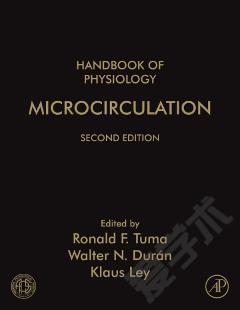Microcompartmentation
Microcompartmentation refers to nonhomogeneous distribution of solutes in compartments of cells or associated structures without intervening membranal barriers. Such variations in concentration of ions, metabolites, intracellular messengers, and nutrients can introduce significant heterogeneity in subcellular function and regulation. The current focus on biological examples of microcompartmentation provides ample evidence for its importance and the role of physical structure in determining local chemical environments. The examples present in the different chapters include microcompartmentation of Ca2+,H+,ATP. ADP, O2, glycolytic intermediates, fatty acids, amino acids, and nucleic acid precursors. In reviewing these systems, the authors provide a useful resource for experimental approaches to study microcompartmentation and provide the basis for future studies of its role in regulation of cell functions.
{{comment.content}}








 京公网安备 11010802027623号
京公网安备 11010802027623号